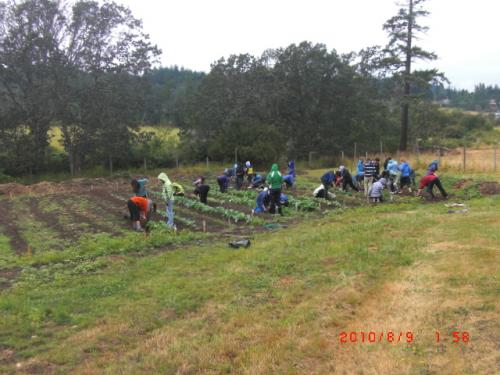Swanwick Star Issue No. 3 (2010)
Education and the Significance of Life
Contents
Most children are curious, they want to know; but their eager inquiry is dulled by our pontifical assertions, our superior impatience and our casual brushing aside of their curiosity. We do not encourage their inquiry, for we are rather apprehensive of what may be asked of us; we do not foster their discontent, for we ourselves have ceased to question.
Most parents and teachers are afraid of discontent because it is disturbing to all forms of security, and so they encourage the young to overcome it through safe jobs, inheritance, marriage and the consolation of religious dogmas. Elders, knowing only too well the many ways of blunting the mind and the heart, proceed to make the child as dull as they are by impressing upon him the authorities, traditions and beliefs which they themselves have accepted.
Only by encouraging the child to question the book, whatever it be, to inquire into the validity of the existing social values, traditions, forms of government, religious beliefs and so on, can the educator and the parents hope to awaken and sustain his critical alertness and insight.
The young, if they are at all alive, are full of hope and discontent; they must be, otherwise they are already old and dead. And the old are those who were once discontented, but who have successfully smothered that flame and have found security and comfort in various ways. They crave permanency for themselves and their families, they ardently desire certainty in ideas, in relationships, in possessions; so the moment they feel discontented, they become absorbed in their responsibilities, in their jobs, or in anything else, in order to escape from that disturbing feeling of discontent.
While we are young is the time to be discontented, not only with ourselves, but also with the things about us. We should learn to think clearly and without bias, so as not to be inwardly dependent and fearful. Independence is not for that coloured section of the map which we call our country but for ourselves as individuals; and though outwardly we are dependent on one another, this mutual dependence does not become cruel or oppressive if inwardly we are free of the craving for power, position and authority.
We must understand discontent, of which most of us are afraid. Discontent may bring what appears to be disorder; but if it leads, as it should, to self-knowledge and self-abnegation, then it will create a new social order and enduring peace. With self-abnegation comes immeasurable joy.
Discontent is the means to freedom; but in order to inquire without bias, there must be none of the emotional dissipation which often takes the form of political gatherings, the shouting of slogans, the search for a guru or spiritual teacher, and religious orgies of different kinds. This dissipation dulls the mind and heart, making them incapable of insight and therefore easily moulded by circumstances and fear. It is the burning desire to inquire, and not the easy imitation of the multitude, that will bring about a new understanding of the ways of life.
The young are so easily persuaded by the priest or the politician, by the rich or the poor, to think in a particular way; but the right kind of education should help them to be watchful of these influences so that they do not repeat slogans like parrots or fall into any cunning trap of greed, whether their own or that of another. They must not allow authority to stifle their minds and hearts. To follow another, however great, or to give one’s adherence to a gratifying ideology, will not bring about a peaceful world.
When we leave school or college, many of us put away books and seem to feel that we are done with learning; and there are those who are stimulated to think further afield, who keep on reading and absorbing what others have said, and become addicted to knowledge. As long as there is the worship of knowledge or technique as a means to success and dominance, there must be ruthless competition, antagonism, and the ceaseless struggle for bread.
– An excerpt from Education and the Significance of Life by J. Krishnamurti



